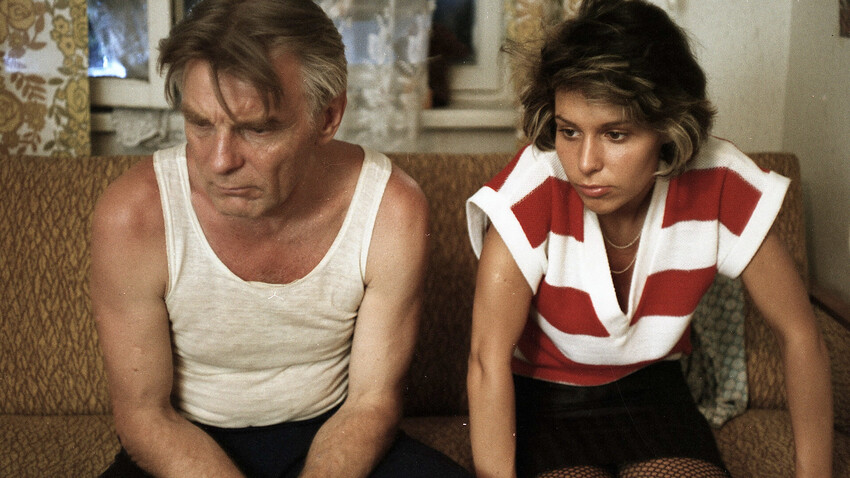
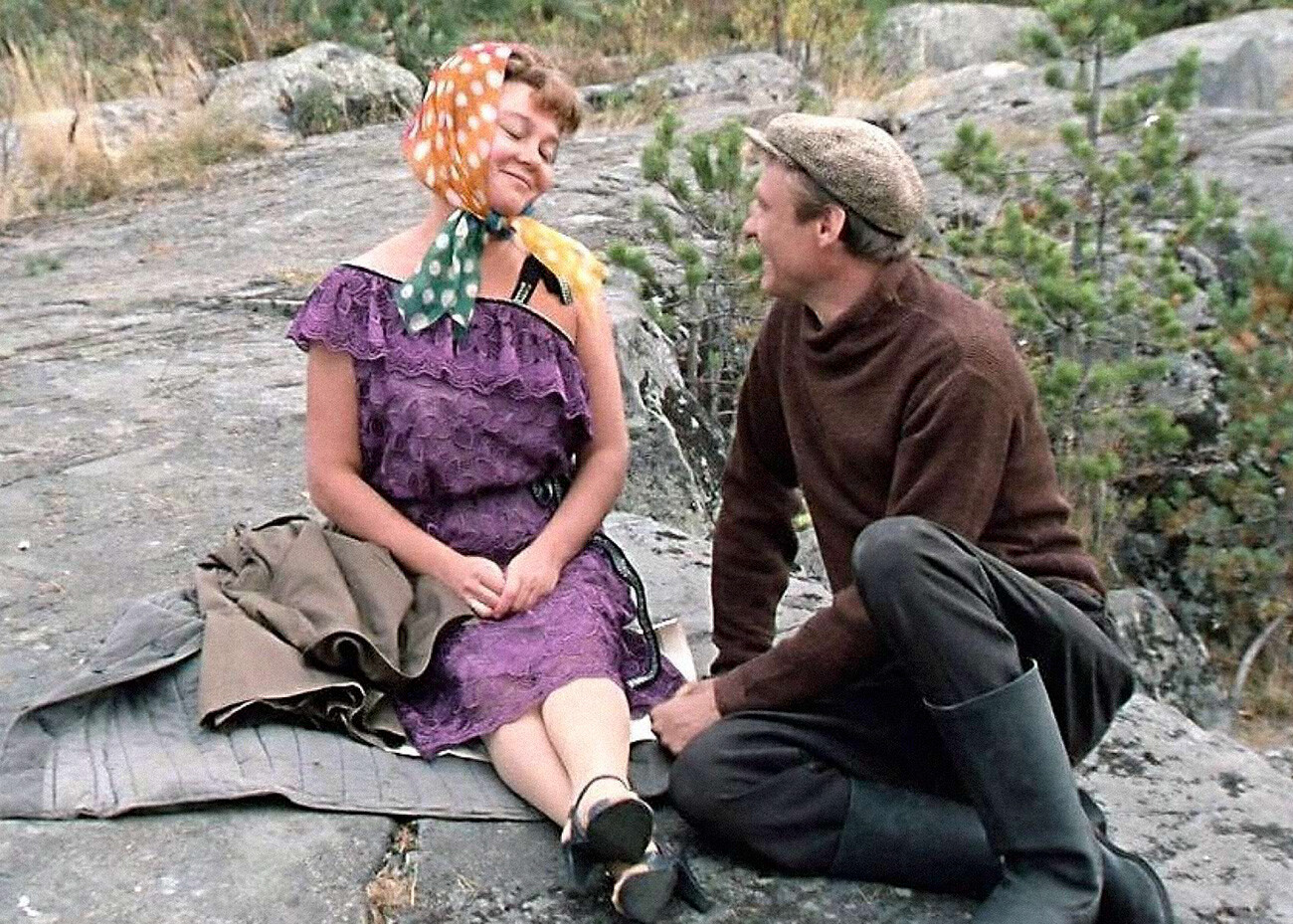
Timber industry worker Vasily Kuzyakin lives with his family in a remote village. He has a curious hobby - pigeon keeping. His wife, Nadezhda, has a difficult personality: she doesn’t recognize Vasily’s interests and constantly reproaches him. One day, after being injured at work, Vasily receives medical leave, travels to a sea resort and meets Raisa Zakharovna. The two develop a summer romance. When the day comes to go home, instead of returning home to his family, Vasily travels to be with Raisa.
This tragicomedy deals with the difficult theme of family relationships. The movie, which quickly became a crowd favorite, is based on the true story of the life of Vasily and Nedezhda Kuzyakin, who lived in the town of Cheremkhovo - home to the movie’s screenwriter, Vladimir Gurkin. In 2011, Cheremkhovo even gave the characters their own monuments.
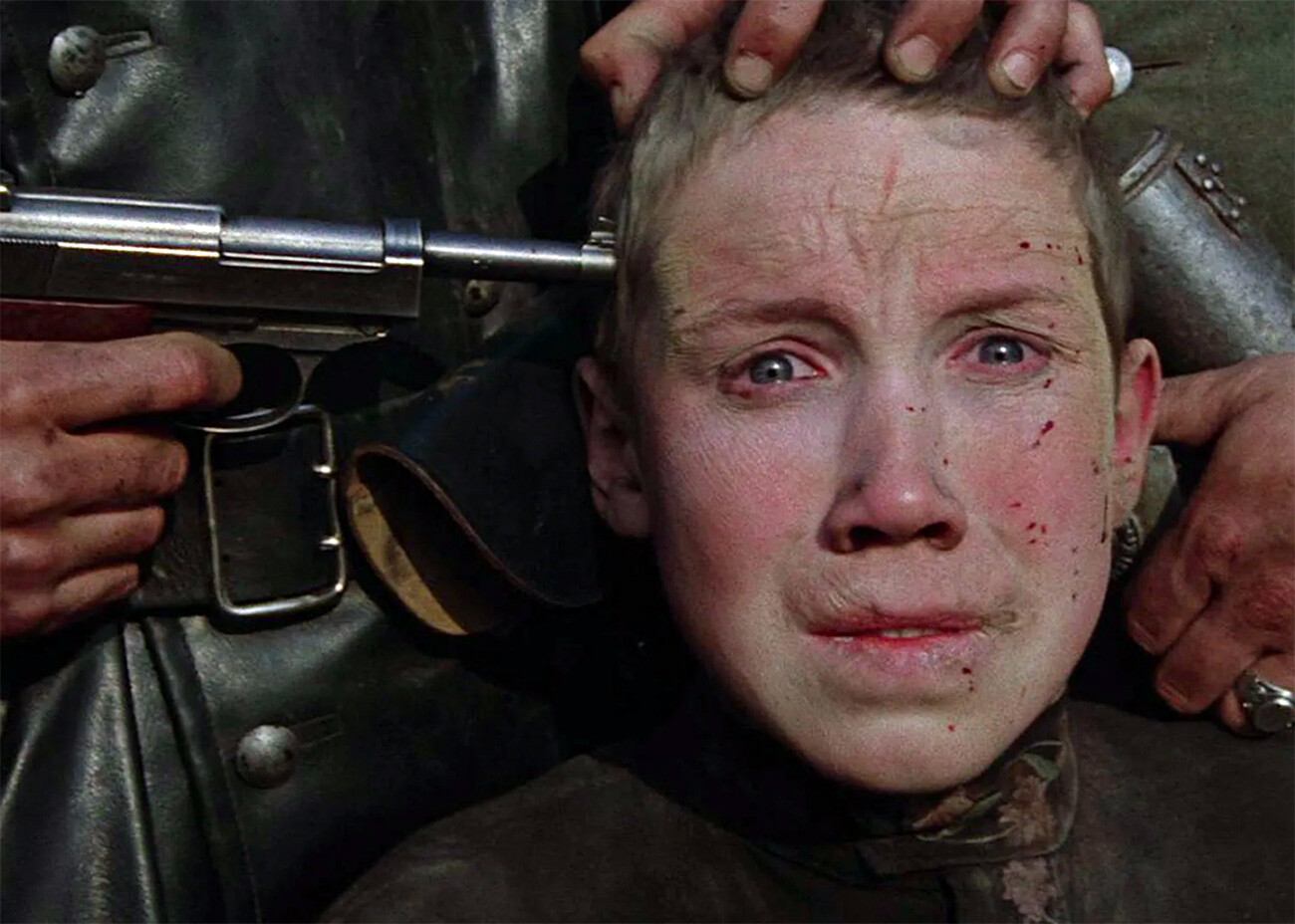
The movie is widely believed to be one of the truest and most brutal screen portrayals of the Great Patriotic War. The setting is Byelorussia (now Belarus) in 1943. The audience observes all the action through the eyes of a young boy named Flyora (short for Florian). His perception of events centers not on large-scale battles and great victories, but on a simple man’s fight to stay alive. The movie won multiple international awards, becoming a global spectacle of 20th-century cinema. According to director Elem Klimov, movie theaters abroad had ambulances waiting outside, ready to whisk away the faint of heart.
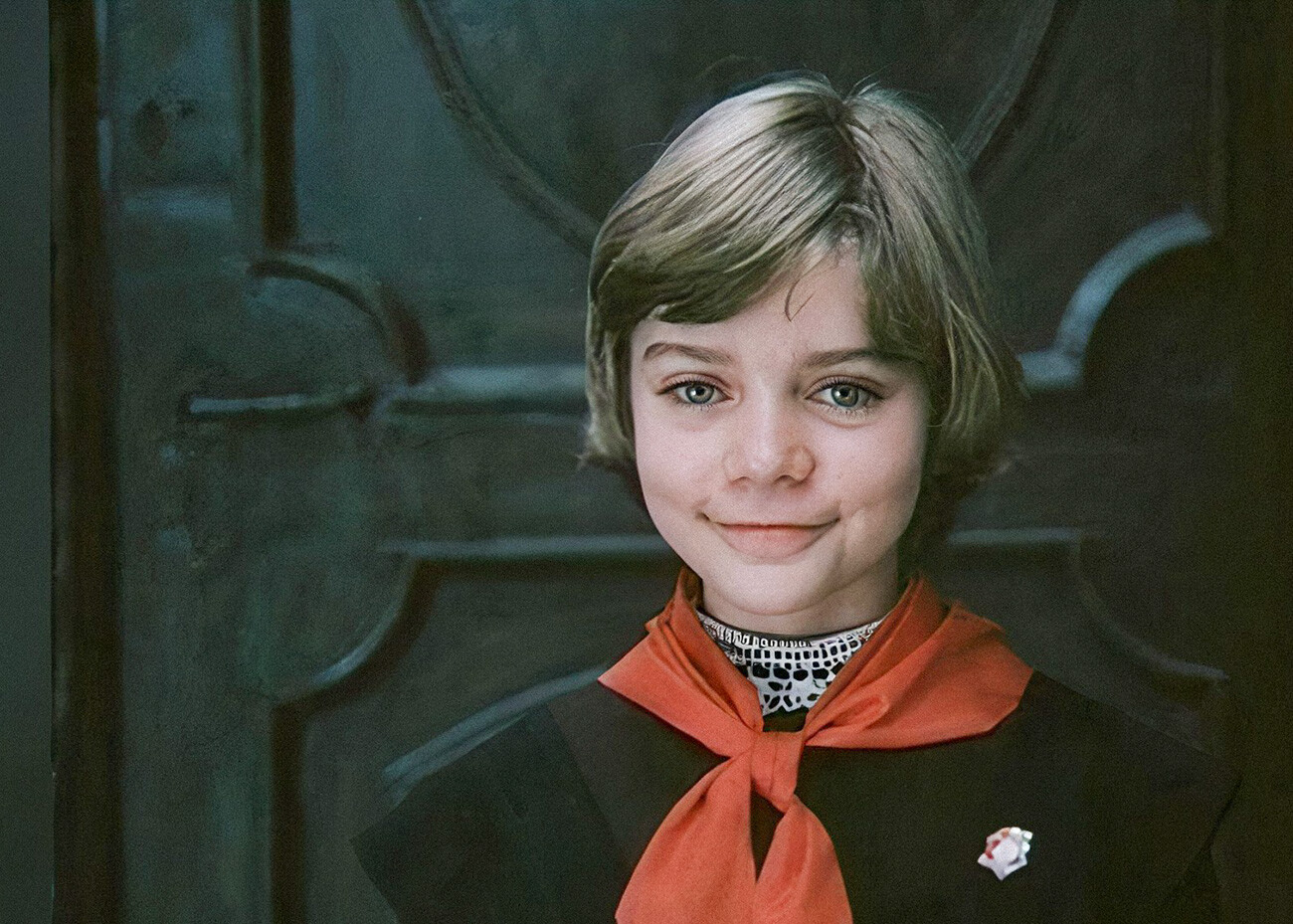
This five-part movie tells the story of Kolya Gerasimov, who goes to the store to buy kefir and ends up stranded in the future, where he finds great adventure on a cosmic scale and attempts to save the universe from space pirates. Helping him is his new friend, Alisa Selezneva.
The movie series was adapted from Kira Bulychev’s sci-fi novel ‘One Hundred Years Ahead’. Some critics point out that - although the movie and book tell of the future, they’re honestly more about the past, owing to its interesting depiction of late-stage USSR.
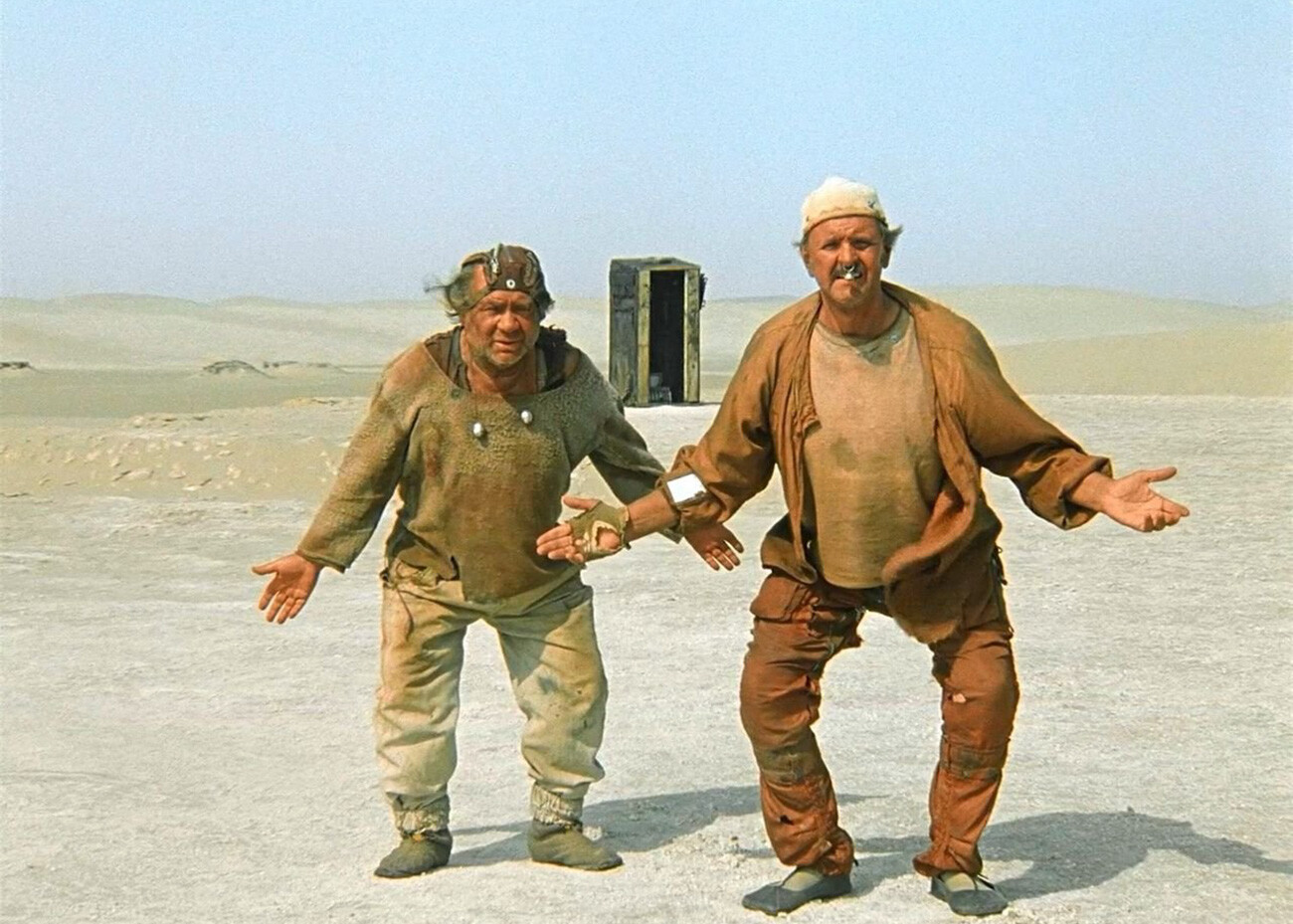
Foreman Vladimir Mashkov is ordered by his wife to go to the grocery store for bread and pasta. Near the bakery, he meets a man named Gedevan, who has a violin. He asks the protagonist to pay attention to a strange barefoot man, who claims to be an alien. To prove that he’s telling the truth, the stranger shows a strange device to the two men, calling it his “little teleportation machine”. Mashkov, having decided that the guy is crazy, accidentally turns the device on and teleports Gedevan and himself to a blistering hot desert on a different planet.
The comedy had a massive impact on Russian-speaking culture, providing it with tons of new jargon and expressions, which are still used today.
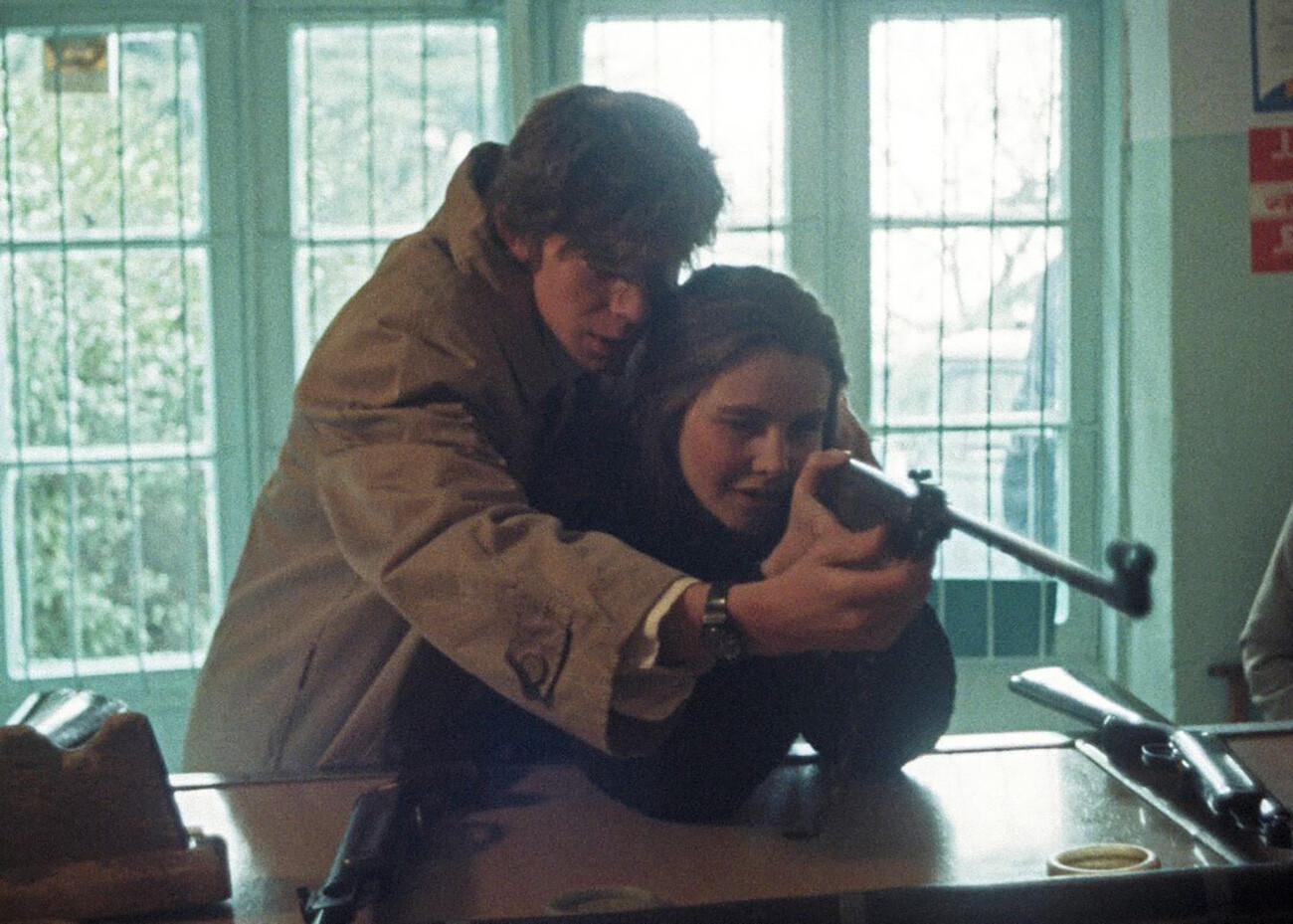
A nurse named Anika is the protagonist. Several years before the movie’s events, she begins dating one of her patients - Andrey Krymov, a major crime boss and financial swindler. One winter day in Yalta, Anika, awaiting her lover, rents a room for the night from a man nicknamed Banan and begins to increasingly detach from the gangster, spending more and more time with her new acquaintance. Krumov, for his part, tries to win her back in his own style - all while concocting a plan to steal a rare Guarneri violin.
The movie became one of the most recognizable symbols of the perestroika, as well as the golden age of Russian rock, which occurred in the latter half of the 1980s. The movie is full of late-Soviet rock stars, including ‘Kino’s’ Viktor Tsoy, as well as Sergey Ryzhenko of ‘Posledniy Shans’.
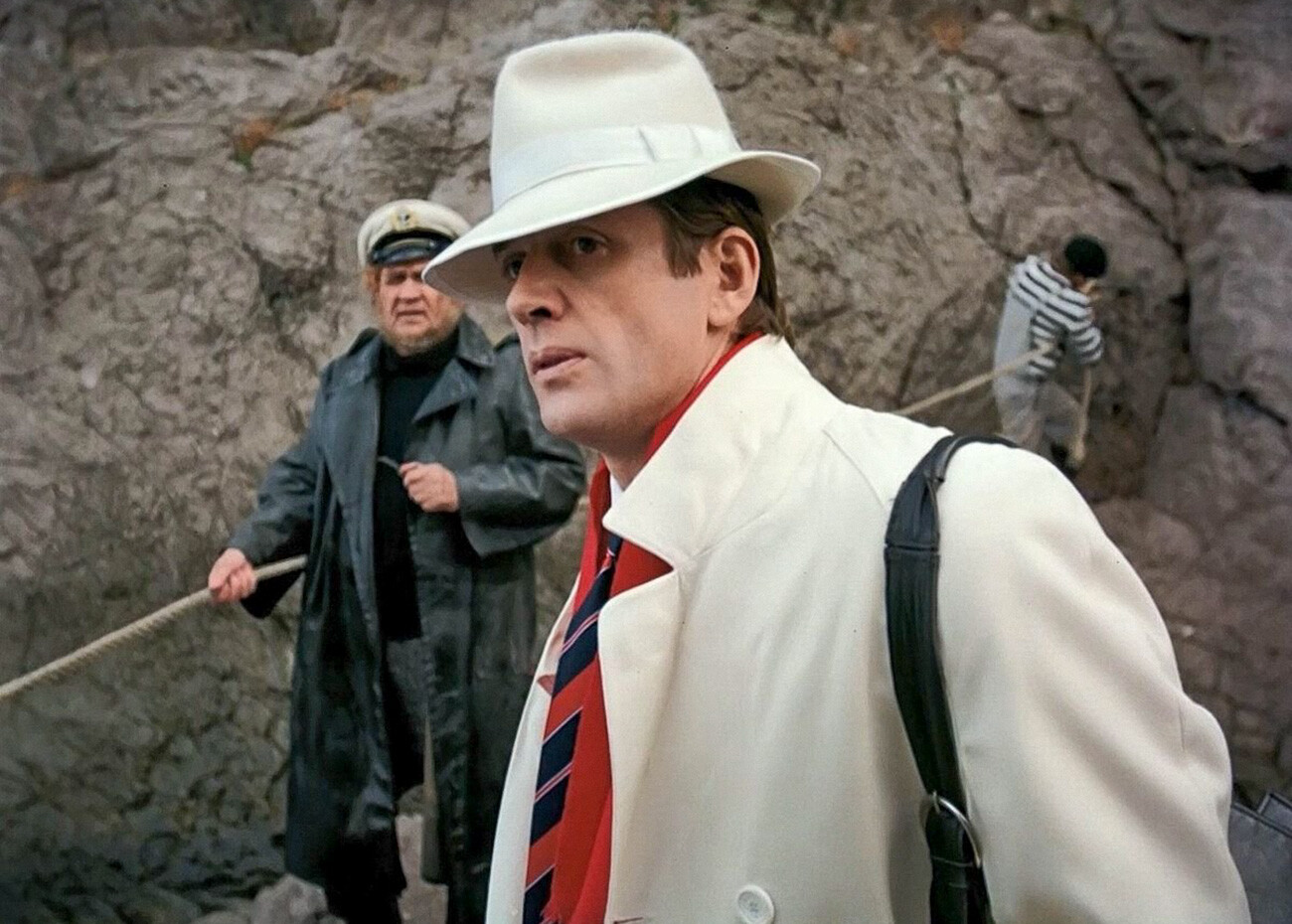
A screen adaptation of the Agatha Christie novel, which now bears the updated title ‘And Then There Were None’. The movie sees several strangers gather on a remote island in the middle of the ocean at the invitation of an unknown man. When they arrive, the host of the massive mansion is nowhere to be seen, while a recording of his voice accuses every guest of murder. Nobody wishes to confess, but, one by one, each guest turns up murdered. The race is on for the surviving guests to find the killer.
The Soviet adaptation is the first ever to feature the book’s original title and grim ending. Many critics see the Soviet interpretation of the detective novel as one of the very few that were faithful to the story. Moreover, the movie can be considered the first Soviet thriller.
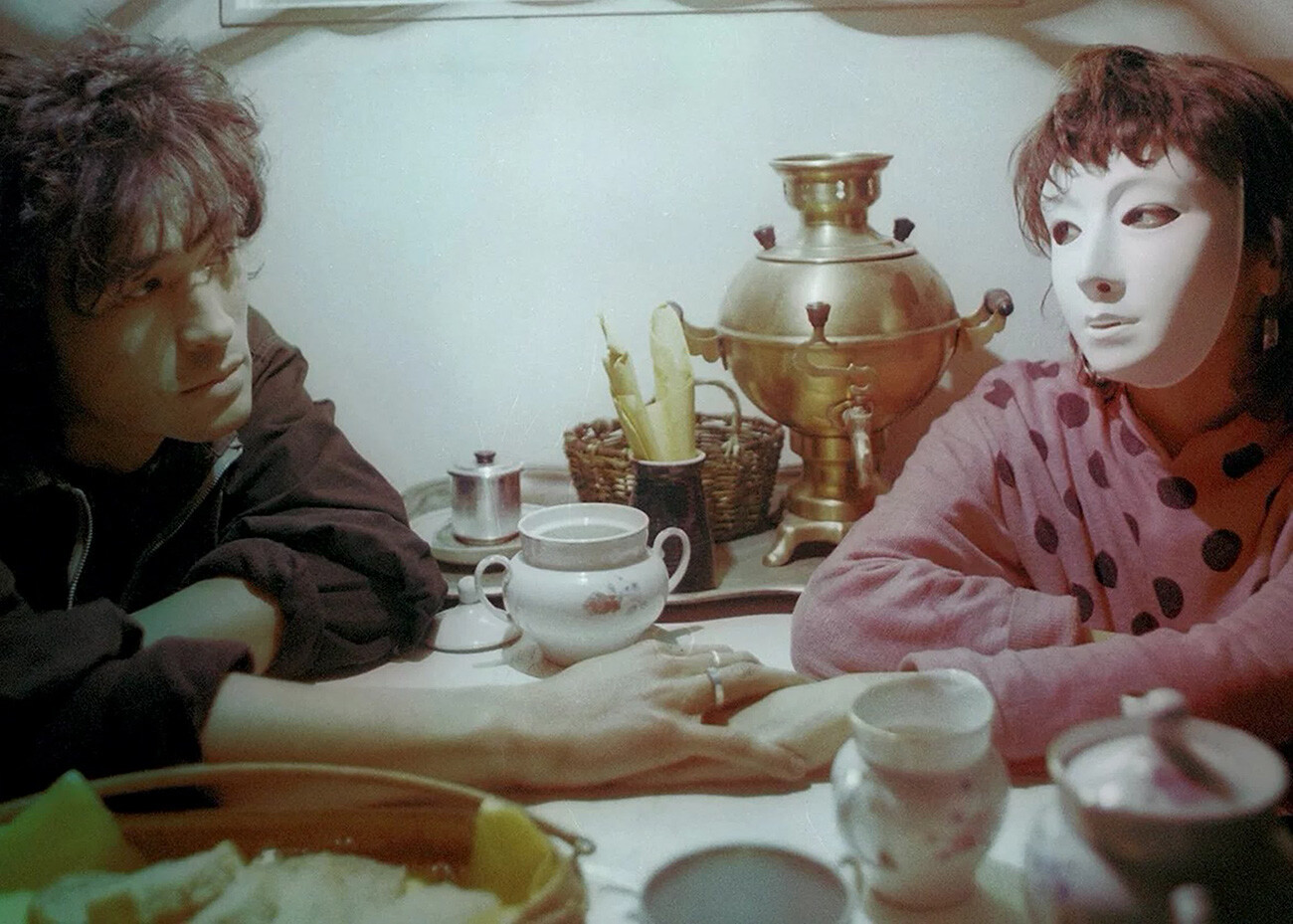
This is one of the few Soviet movies to depict the aftermath of taking hard drugs. A man named Moro, the protagonist, returns to his homeland in Almaty, in Kazakhstan, where he remembers Dina, a woman he was once in love with. However, when he finally meets her, she has turned into an addict. Moro decides to help her kick the habit and begins to hunt down the dealers.
The main roles were played by legendary musicians Viktor Tsoy and Petr Mamonov (from the band ‘Zvuky Mu’). The movie was their debut effort as actors and the soundtrack was almost entirely the work of Tsoy’s band ‘Kino’. The song ‘Zvezda Po Imeni Solntse’ (‘A Star Called Sun’) attained cult status in the USSR and remains ingrained in contemporary Russian consciousness.
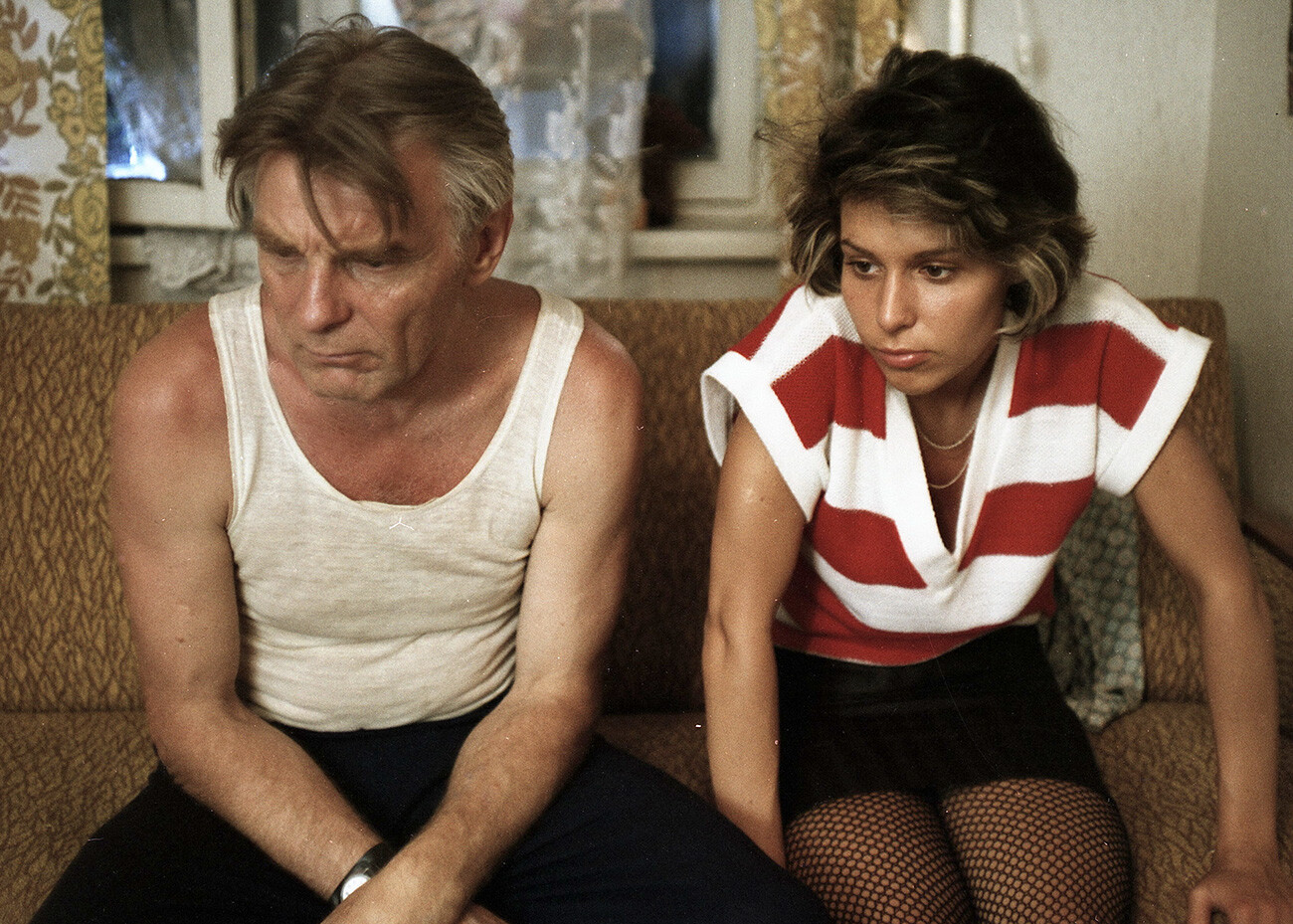
At the center of the story is Vera, who’s barely graduated school, but already smokes, drinks and parties. The parents don’t understand her lifestyle and when they discover $20 on her (a criminal offense in those days), begin to threaten her with the wrath of her older brother, whom she fears very much. During one of her disco outings, Vera meets Sergey. The chance meeting sparks a huge romance. However, her parents don’t agree with the relationship which risks destroying the family altogether.
The movie is noteworthy for its bravery: ‘Malenkaya Vera’ became the first Soviet picture to honestly portray a sex scene. This daring liberty quickly earned it perestroika-defining status. It was after the premiere that previously taboo discussions were finally being had in the USSR: prostitution, crime, domestic violence and more.
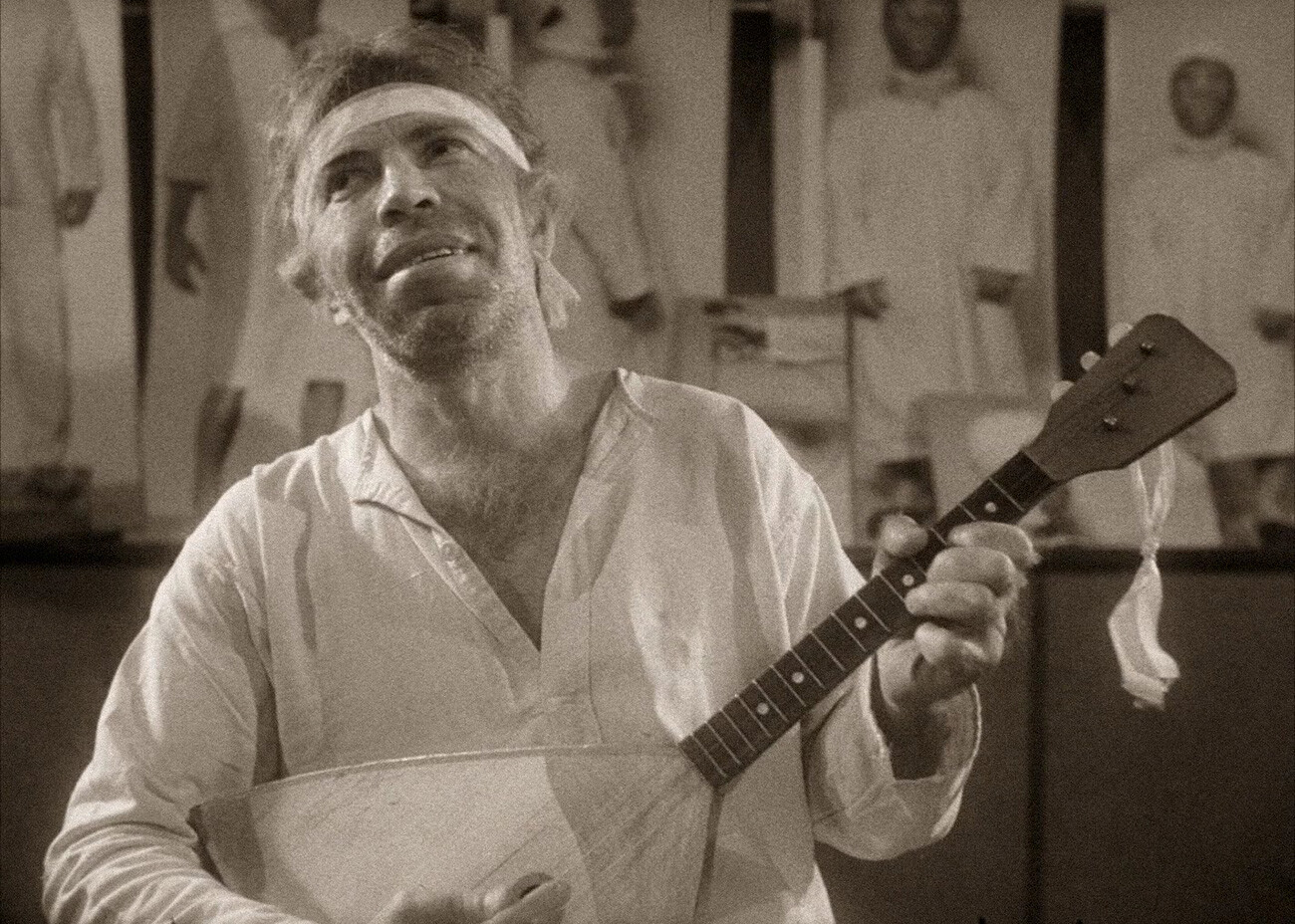
This movie is an adaptation of Mikhail Bulgakov’s short story of the same name. Sharik, a stray dog, ends up at the home of Professor Preobrazhensky, where he becomes an unwitting participant in an experiment to transplant a human pituitary gland into the body of a dog. Gradually, Sharik begins to resemble a human, but this doesn’t lead to anything particularly good happening to anyone.
The movie is, essentially, an edgy satire on bolshevism. The plot has frequently been interpreted as an allegory on the failed communist experiment to radically change humanity. The short story itself was banned in the USSR for a long time; the first official edition was published in 1987 - a mere year before the release of the movie.
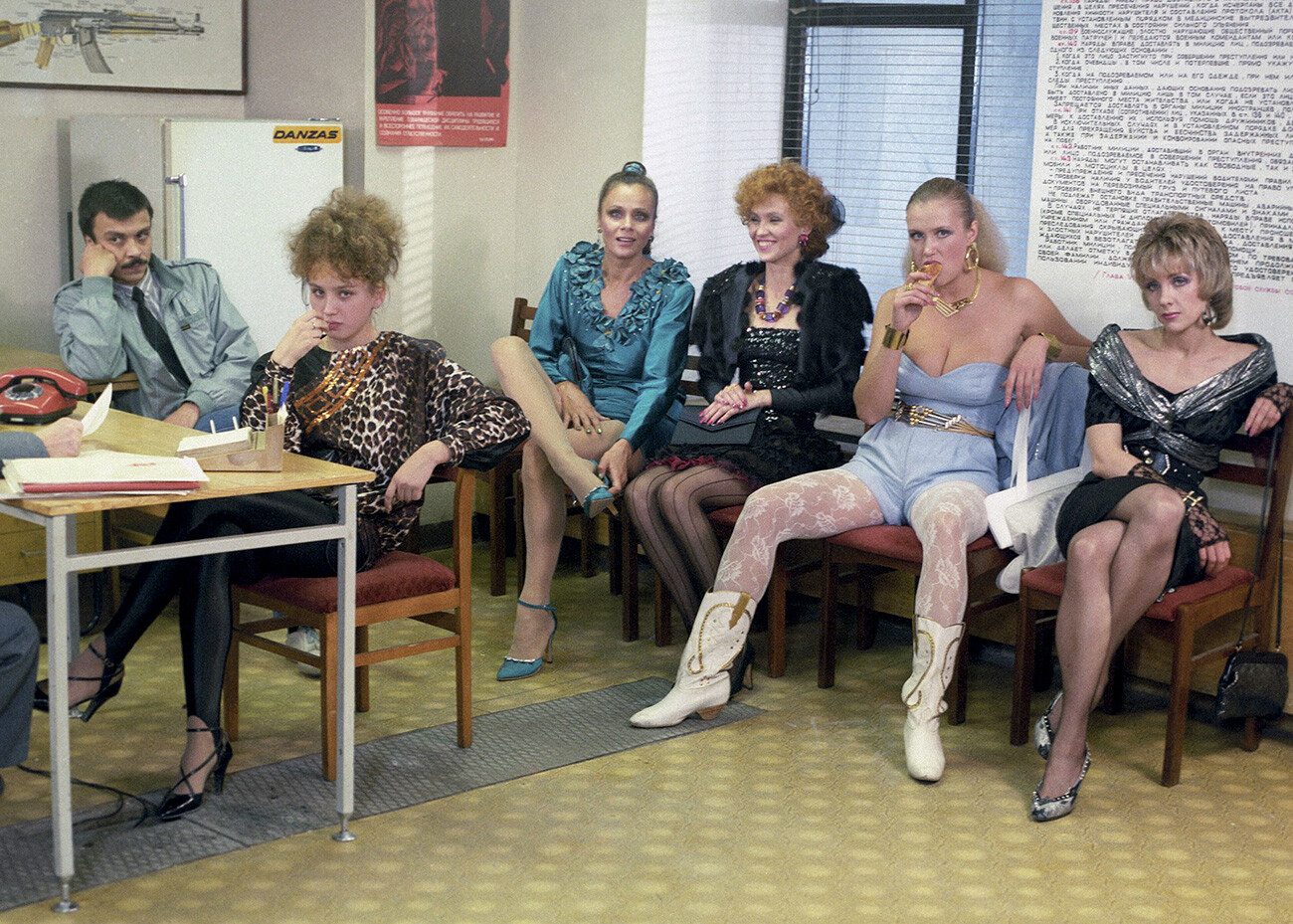
The story revolves around Tanya, a nurse that supplements her income with prostitution. Life isn’t easy for her, as the extracurricular job is illegal. However, thanks to her charm, she’s able to avoid serious trouble. Tanya’s life takes an unexpected turn when one of her clients ends up falling for her. The pair get married and leave for Sweden. However, even there, Tanya doesn’t find the solutions to her deep-rooted problems, while also realizing that it’s harder to break free of the shackles of her former life than she thought.
The movie was adapted from Vladimiar Kunin’s short story of the same name, and, like other mentions on this list, was a major event for that era. As it happens, ‘Interdevochka’ is also the first Soviet movie to not be made with state money.
If using any of Russia Beyond's content, partly or in full, always provide an active hyperlink to the original material.
Subscribe
to our newsletter!
Get the week's best stories straight to your inbox